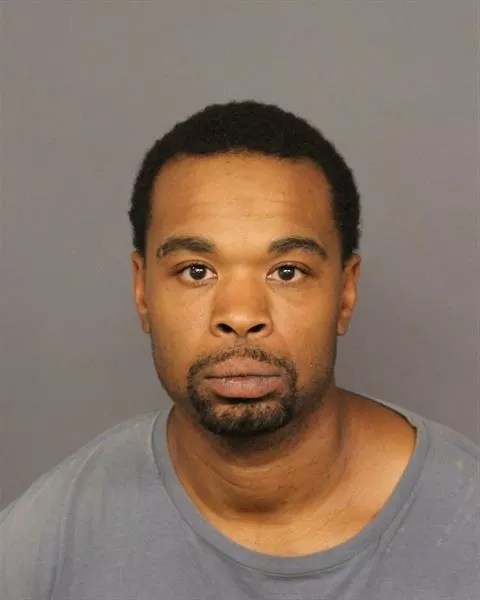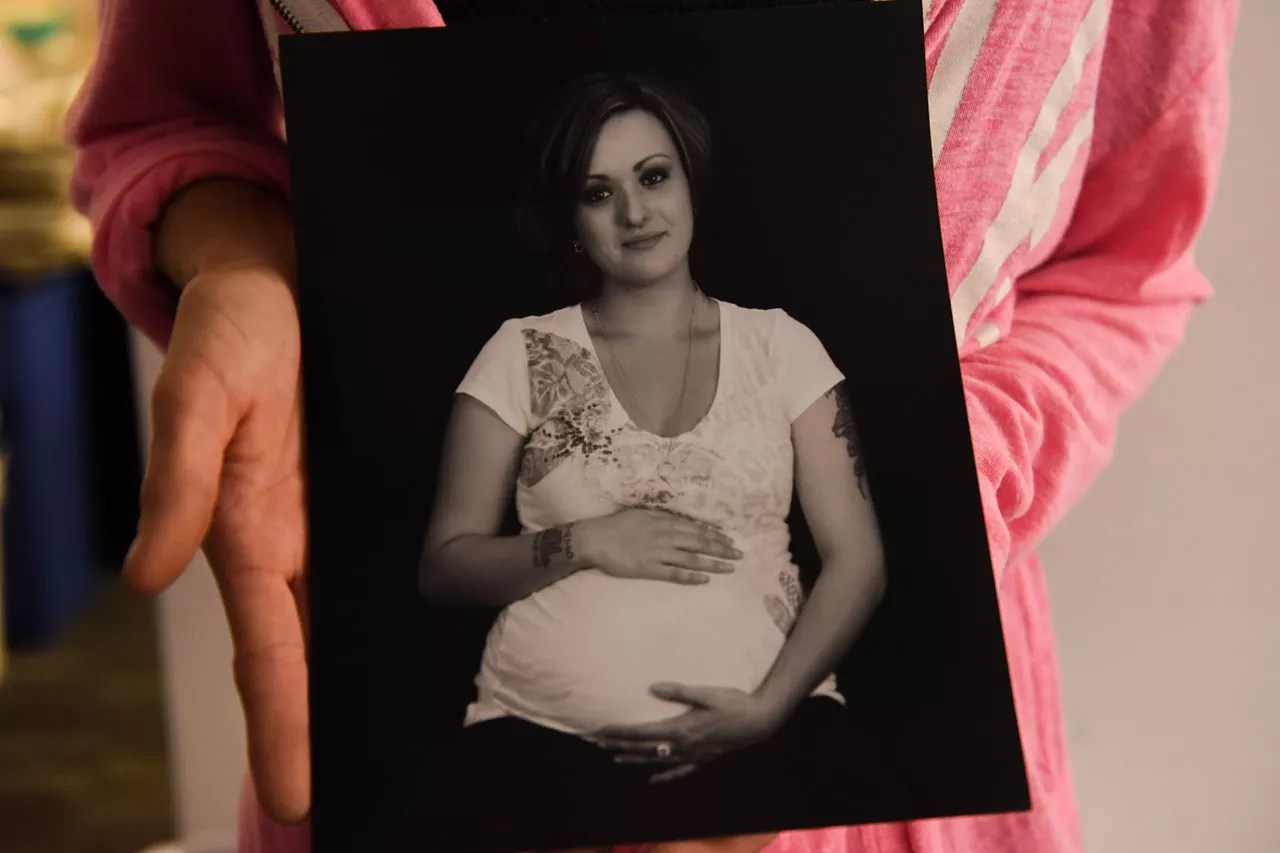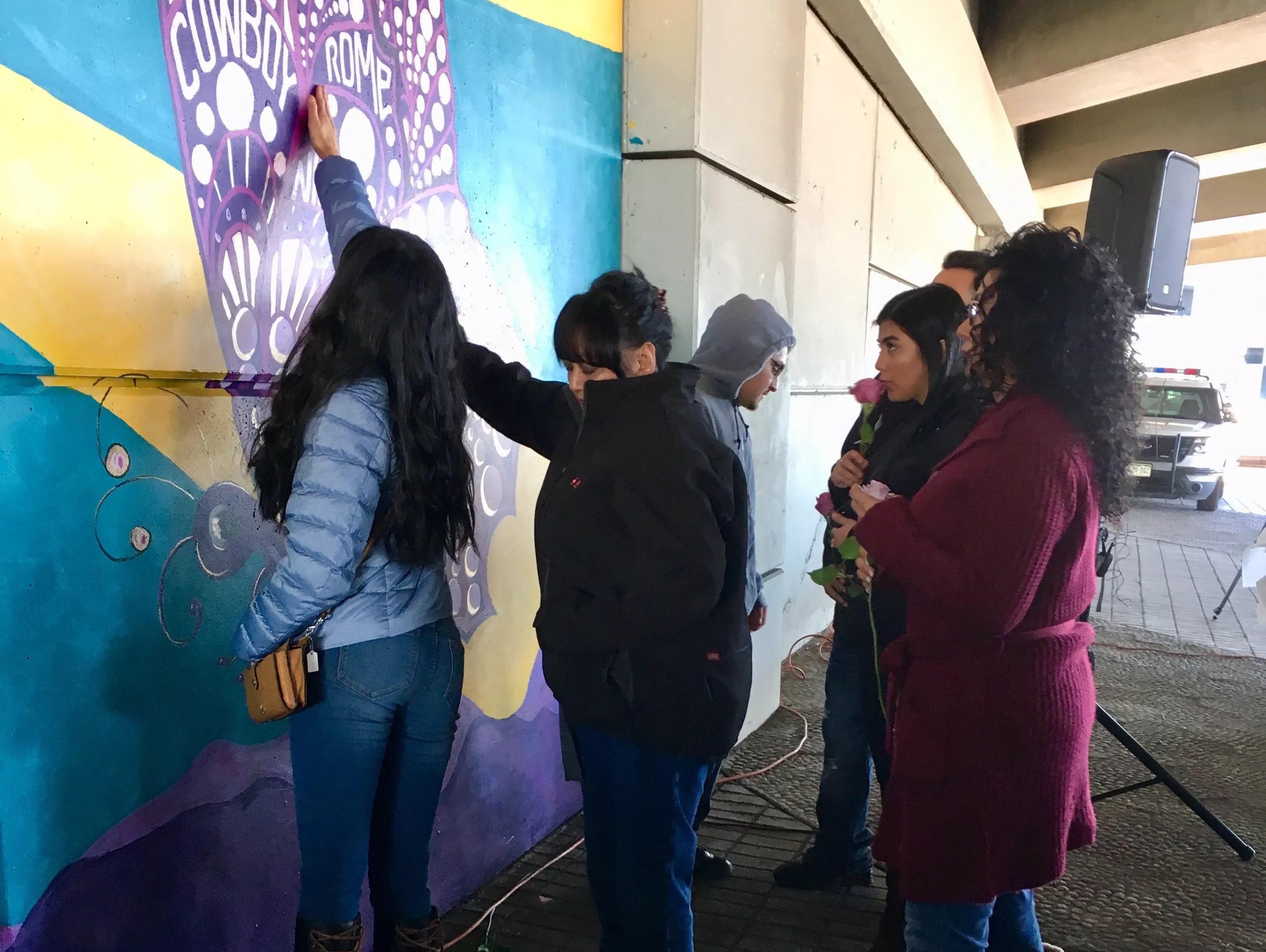
DPD

Audio By Carbonatix
A Denver jury has found 39-year-old Maurice Butler guilty of three counts of first-degree murder in connection with the deaths of three adults behind a warehouse off South Broadway near the 1-25 interchange and RTD light-rail station last August. Butler was the Denver Police Department’s only named suspect in the triple homicide.
The victims – Nicole Boston, Jerome Coronado and Christopher Zamudio – had all been camping together when they were shot to death on August 8. The DPD revealed that all three had been homeless, which immediately became a focus during the initial round of media coverage last summer. But a Westword investigation of the murders and the victims’ pasts (“Close to Home,” September 10) uncovered a much more nuanced – and tragic – story.
“Yes, Nicole Boston, Jerome Coronado and Christopher Zamudio were all people who happened to be experiencing homelessness, but they were first and foremost people,” we wrote. “They were people with histories, individual triumphs, failures, hopes and dreams.”
Some of those histories, triumphs, failures and dreams came to light when we spoke to Connie Jones, Nicole Boston’s mother. Jones revealed that her daughter had been the valedictorian of her high school class, and later a rising star in DISH’s sales department. But after she started experiencing seizures due to an undiagnosed medical ailment, she was prescribed oxycontin to cope with chronic pain. She soon became hooked on opioids, as did her second husband, Coronado. And despite having three young children to look after, the couple’s drug dependency became so severe that they ended up on the streets.

Nicole Boston, a mother of three, raised her kids in the suburbs of Denver.
Kenzie Bruce
According to evidence unveiled during this month’s jury trial, ending up on the streets is how Boston and Coronado came to know Butler, who allegedly supplied drugs to many transient individuals living in and around Civic Center Park. Christopher Zamudio, the third victim in the triple homicide, was also a member of the homeless community that hung out around the State Capitol. But although Zamudio was reportedly friends with Boston and Coronado, it is not clear whether he struggled with any drug dependencies of his own or knew Butler.
In our September 2018 story, we reported that police detectives believed Butler was pursuing Boston and Coronado because they owed him money. During the trial, a lot more information surfaced about what probably occurred on the night of August 8, 2018.
According to court documents obtained by Westword, witnesses told DPD detectives that Butler went by the street name “Khaos,” that he ruled Civic Center Park with an “iron fist,” and that he was known to use violence against people who owed him drug debts.
Witnesses told police that Boston and Coronado fell into this camp; they allegedly owed Butler at least a couple hundred dollars. “Beginning two to three weeks before the murder, Ms. Boston and Mr. Coronado had expressed fear about what would happen to them if their debt was not paid,” prosecutors noted in a June 26 motion before the court.
Witnesses told police that Butler had assaulted Coronado twice in the weeks leading up the murders – once giving him a black eye and another time leaving him with “potentially broken ribs,” the motion stated.
“Another witness heard [Butler] say that he would take Ms. Boston to a hotel if she was left unattended by Mr. Coronado, which the witness interpreted as a threat to pimp Ms. Boston,” it continued. “Mr. Coronado and Ms. Boston asked for help finding a safe place to stay, citing their fear of the Defendant. [They] left their usual location at Civic Center Park to hide out at 765 S. Broadway.”
Perhaps the most incriminating piece of evidence against Butler, though, came from the GPS ankle monitor he was wearing as a condition of probation from a prior felony conviction. Around the time that Boston, Coronado and Zamudio were shot to death, data from the GPS tracker showed that Butler was at the Broadway address where their bodies were later found.
“Butler admitted to being in the area of 765 South Broadway on the date of the murders,” prosecutors noted, “but claimed that he was there selling drugs and denied involvement in the murders.”
Jurors did not buy Butler’s claim. On Monday, July 22, they delivered three guilty verdicts. On July 25, he was sentenced to three consecutive life sentences with no possibility of parole. “I suspect you have your own demons, and I want to acknowledge that,” Judge J. Eric Elliff told Butler at the sentencing. “But nobody can condone what you did.”

Friends and family at the November unveiling of a mural honoring the victims of the triple homicide.
Chris Walker
The case might be closed, but friends and family members of Boston, Coronado and Zamudio are still dealing with the ramifications of the murders, including caring for Boston’s three children (two of whom she had with Coronado). They take some comfort from a mural that’s now drawing the attention of motorists underneath the I-25 and Broadway interchange.
That mural, which depicts a butterfly with the victims’ nicknames – “Nikki,” “Rome” and Cowboy” – painted on its wings, was unveiled last November. Denver City Councilwoman Robin Kniech spearheaded the campaign to have it created, securing funding through a Denver Arts & Venues grant and collaborating with the victims’ families, the Denver Arts and Skills Center and the Gathering Place to make it a reality. The artist who designed the mural, Kylee Wellons, was at the ceremony, along with the victims’ friends and family members.
One of Coronado’s sisters told the gathering that though her family was reeling over Coronado’s death, his memory lived on. After thanking everyone who made the mural possible, she added, “Brother, I know you’re listening. Please know that we love and miss you so much.”
Update: This story was updated on July 26 to include Butler’s sentencing.